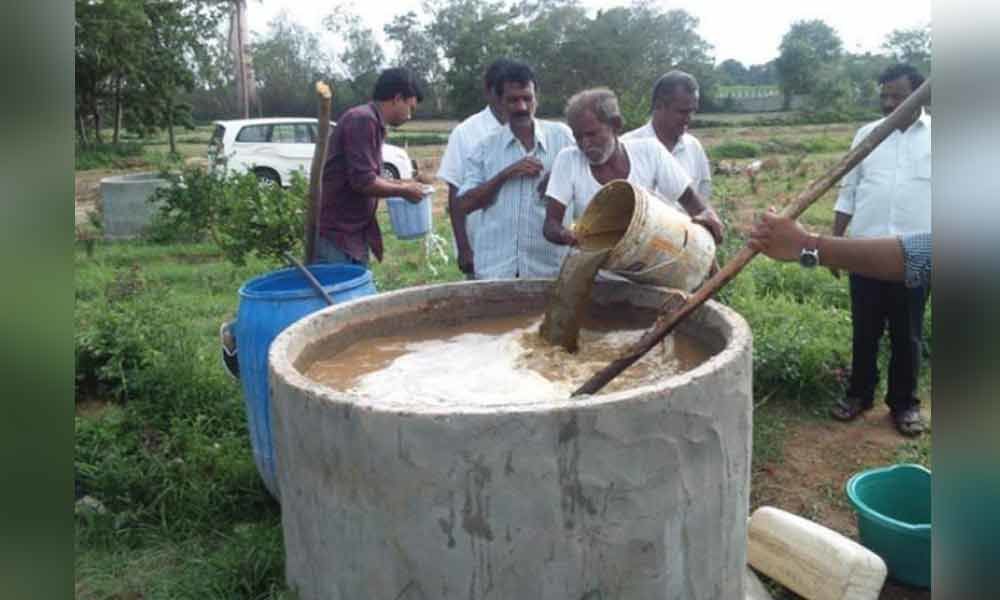A cluster of 200 villages take to natural farming and ban use of chemicals

About 200 villages under 20 clusters involving 100,000 farmers have been declared 'natural farming' villages by the department of Agriculture in the district.
Anantapur: About 200 villages under 20 clusters involving 100,000 farmers have been declared 'natural farming' villages by the department of Agriculture in the district. The department's natural farming project is part of the government's plan to popularize natural farming and bring down the use of chemicals and pesticides in agriculture crops.
As part of its plan, it is promoting natural farming cluster villages which will raise plantations and agriculture crops through natural farming manure. In each cluster 10 villages have adopted natural farming methods and techniques and has completely done away with the use of chemicals and fertilizers. In a phased manner the concept of organic farming will be expanded to throughout the district, depending upon the enthusiasm of the farmers.
In each cluster 5000 farmers from 10 villages are implementing the natural farming methods. As many as 10 clusters are operating and declared as 'natural farming zones' involving about 50,000 farmers and covering an acreage of 2.50 lakh acres.
The villages include Vajrakarur, Kambaduru, Raptadu, Somandepalle, Amadaguru, Madakasira and other sorrounding villages.
Agriculture officer Lakshma Naik told 'The Hans India' that 'Jeevamrutham' an amalgation of animal dung, urine and botanical waste is being used by farmers replacing chemicals and pesticides to a great extent. Farmers who have seen the benefits of natural organic farming are moving away from highly chemicalised farming to organic farming by using only animal dung and agriculture waste as manure and using 'Jeevamrutham' .
Farmers in organic clusters are raising horticulture crops, vegetable, mulberry, grundnut and even millets adopting natural farming techniques.
The farmers are being educated on the benefits of natural farming and those who have taken to organic fertilizers are themselves spreading the good news associated with it. He stated that the organic farming reduces cultivation costs,boosts soil health and increases the yield of the crop apart from contributing to excellent human health.
Farmers in Uravakonda mandal are excited about organic farming has negated all the evils of chemicals and pesticides. Ramana, a farmer of Uravakonda mandal says that organic farming is 80 percent cheaper than fertilizer farming. He revealed that he spent a mere Rs.25,0000 on organic inputs and his profit turned out to be Rs.3.50 lakhs on his 4 acre crop.
A 3 member committee appointed by the department is guiding and overseeing the smooth transition from chemical fertilizers to organic farming.














